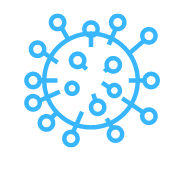What is Zinc? A Essential Nutrient”
“What is Zinc?”
Zinc is a chemical element with the symbol Zn and atomic number 30. It is a bluish-white, lustrous metal that is commonly found in the Earth’s crust. Zinc is known for its corrosion resistance and is often used as a protective coating for other metals. It is also an essential trace element for human health, playing a role in various physiological processes. Zinc is used in a wide range of applications, including the production of alloys, batteries, rubber products, cosmetics, and dietary supplements.
A Essential Nutrient”
Zinc is an essential nutrient that is required for various functions in the body. It plays a crucial role in immune function, growth and development, wound healing, and DNA synthesis.
One of the primary functions of zinc is its role in supporting the immune system. It helps to activate the cells responsible for defending the body against pathogens, such as viruses and bacteria. Zinc also plays a role in regulating inflammation and promoting the production of antibodies.
Zinc is also important for growth and development, especially during childhood and adolescence. It is involved in the synthesis of proteins and DNA, which are essential for tissue repair and growth. Adequate zinc intake is particularly important during periods of rapid growth, such as pregnancy and infancy.
Furthermore, zinc is necessary for wound healing. It helps to maintain the structure and integrity of the skin and mucous membranes, which are the body’s first line of defense against infection. Zinc also promotes the production of collagen, a protein that is essential for wound healing.
In addition to these functions, zinc is involved in various other processes in the body. It is required for normal taste and smell perception, as well as for the metabolism of carbohydrates, fats, and proteins. Zinc is also essential for reproductive health, as it is involved in the production of hormones and the development of healthy sperm.
It is important to note that while zinc is essential for health, it should be consumed in appropriate amounts. Too much or too little zinc can have adverse effects on the body. The recommended dietary allowance for zinc varies depending on age, sex, and life stage. Good food sources of zinc include oysters, red meat, poultry, beans, nuts, and whole grains. If needed, zinc supplements can also be taken under the guidance of a healthcare professional.
“Benefits and Uses of Zinc”
Zinc is an essential mineral that plays a crucial role in many bodily functions. It is required for the proper functioning of over 300 enzymes and is involved in various physiological processes. Here are some of the benefits and uses of zinc:
1. Immune Function: Zinc is necessary for the development and functioning of immune cells. It helps in the production of white blood cells, which protect the body against infections and diseases. Adequate zinc intake can boost the immune system and help in faster recovery from illnesses.
2. Wound Healing: Zinc is involved in cell division and growth, making it essential for wound healing. It helps in the formation of new blood vessels, collagen synthesis, and proper tissue repair, promoting faster recovery from injuries and surgical incisions.
3. Skin Health: Zinc is known for its beneficial effects on the skin. It regulates oil production and reduces the formation of acne and other blemishes. It also supports the skin’s natural barrier function, preventing moisture loss and keeping the skin healthy and hydrated.
4. Cognitive Function: Zinc is necessary for proper brain development and function. It plays a vital role in neurotransmitter signaling and communication between brain cells. Adequate zinc levels have been linked to improved cognitive performance, learning, and memory.
5. Zinc Deficiency Treatment: Zinc deficiency can lead to various health issues, including impaired growth and development, weakened immune system, hair loss, and delayed wound healing. Supplementation or increasing dietary intake of zinc can help address these deficiencies and alleviate associated symptoms.
6. Digestive Health: Zinc is involved in the production of stomach acid and aids in the digestion of food. It also supports the maintenance of a healthy gut lining and prevents damage caused by certain medications or conditions like Crohn’s disease.
7. Age-related Macular Degeneration (AMD): Zinc, along with other antioxidants, has been found to have a protective effect against age-related macular degeneration, a leading cause of vision loss in older adults.
8. Zinc for Cold Relief: Some studies suggest that zinc lozenges or supplements can help reduce the duration and severity of cold symptoms. However, more research is needed to confirm these findings.
It’s important to note that while zinc is beneficial and necessary for overall health, excessive intake of zinc can be harmful. It is recommended to consume zinc through a balanced diet or under the guidance of a healthcare professional or registered dietitian to ensure optimal intake and avoid adverse effects.
